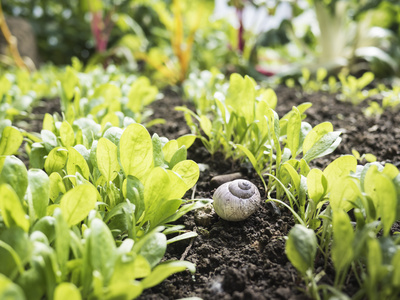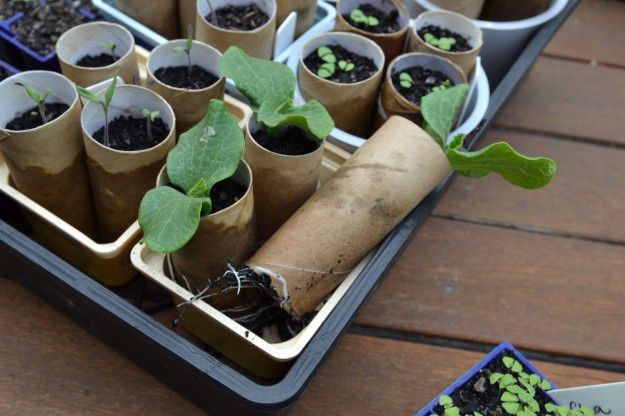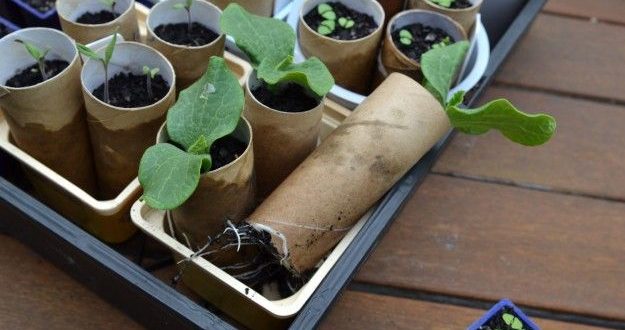We’re getting busy in the garden, and so too are the slugs and snails. Not wanting to resort to poison the Oily Rag team have dug through our reader’s suggestions and come up with some great method for slug and snail control.
Techniques to control slugs and snails

Trish from Tauranga says, “To keep slugs and snails away from newly planted seedlings, just make a small flat container out of tin foil and put 3 or 4 slices of cucumber on it. The cucumber and tin foil together seem to give off an unnoticed smell which slugs and snails don’t like. I put a couple of little holes in the bottom so they don’t collect rainwater. We have a raised garden about 2.5 x 3 metres and I used 3 small containers about 12 x 9cm.”
Roger says there are products available in garden centres that are safe for pets and wildlife. “I have never used a slug and snail bait because I have been worried about poisoning bird life, but now I can blitz the blighters worry-free.”
Julia from Christchurch writes, “I use wood chips to keep slugs and snails off the garden – spread it liberally around the paths and the slugs and snails won’t go over the chips into the garden.”
Anna says, “A good tip for preventing slugs and snails getting at seedlings is to use broken eggshells – also pine needles if you have them.”
Canny Scot from Christchurch also like eggshells: “Save your eggshells and dry them in the oven, then crush them and sprinkle around the plants you want to protect. Snails will not cross them. They break down and benefit the soil too – without chemicals.”
Here are some other tips you may like to try.
Sawdust, wood shavings, wood ash, coffee grounds, citrus peel are all thought to be effective in keeping away slugs and snails. Sprinkle a ring around the plants to create the barrier.
As it happens, slugs and snails are also quite easy to trap.
A more novel trap involves beer. It seems the critters will die for a good beer. Pour some beer in the bottom of a small tin (something like an empty salmon tin). Sit the tin on the ground so the slugs climb up the side and over. The theory is after a few slurps the now inebriated critters will fall in and drown. The base of a plastic drink bottle may work as well.
Another trap can be made by creating a dark environment for them to hide in or under during the day. Cardboard or newspaper works, but almost anything will do – like a piece of timber or plant pot turned upside down. It’s then just a matter of collecting them during the day while they are having a snooze and disposing of them. So as to not upset the slug and snail rights lobby, we suggest a humane approach like relocation to an affordable housing estate – but if that fails then feeding them to chickens and ducks, or drowning works.
Natural Weed Killer
Still, on gardening, Marion from Auckland has this tip for making a natural weed killer.
- Mix 1 gallon of white vinegar
- Half a cup of salt
- Eight drops of liquid dishwashing soap
Put all in a spray bottle to apply. It will kill weeds in two to three days.
Homemade ‘glasshouse’
Trixie has an innovative way of making a cheap ‘glasshouse’. “I made mine by purchasing clear plastic shower curtains and attaching them to the inside of my balcony with curtain hooks. Apart from the easterly breeze which blows them around, I have managed to keep the plants in my container gardens warm and sprouting nicely.”
Seed planting tips

G.B. says, “If planting large seeds like beans, use the inners of toilet rolls, part fill with seed mix, put in the seed and top up. You can get about 12 of these to stand up in an ice cream container. And in due course plant out the whole tube. The plants will not suffer any transplant shock and the cardboard will rot away quickly.”
Composting tip for balancing nitrogenous waste
Glenn from Wellington writes, “I always had a problem composting, till at a night class I was told to simply wrap peelings etc in newspaper and put in the compost. The newspaper provides carbon and so balances the green nitrogenous waste.”
By Frank and Dr Muriel Newman.
Read more Oily Rag articles here.
You can contact the Oily Rag community via the website at oilyrag.co.nz or by writing to Living off the Smell of an Oily Rag, PO Box 984, Whangarei.










Join the Discussion
Type out your comment here:
You must be logged in to post a comment.